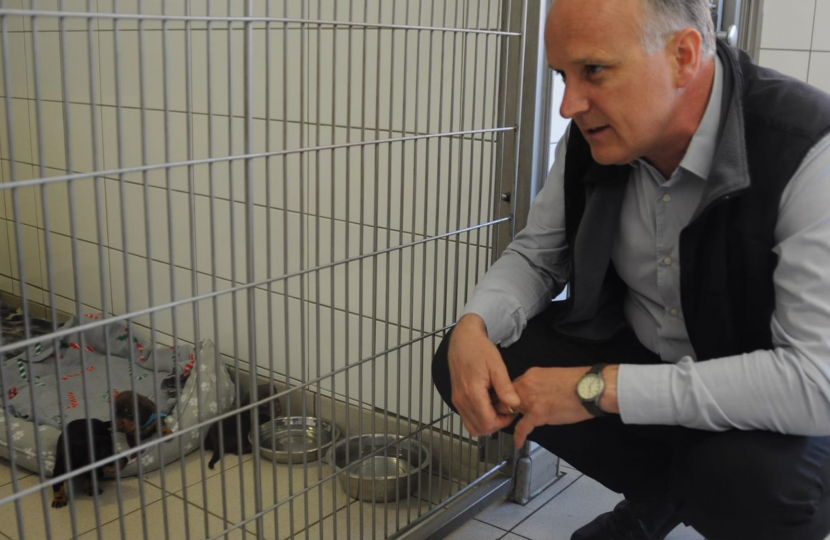
- The EFRA Select Committee has today published its Report on Pet Welfare and Abuse (published here )
The EFRA Committee wants the Government to address the fact that more than half of the puppies entering the market come from unlicensed breeders, and is today calling for a list of licensed breeders to be made public, and a change in the licensing regulations so as to include breeders of two or more litters a year, in order to counter low welfare breeding practices and provide assurance to buyers.
The Committee’s Pet welfare and abuse inquiry has exposed the major rise in canine fertility clinics, from under 40 in 2020, to over 400 in 2023. Unscrupulous canine fertility clinics have benefitted from diffuse enforcement arrangements, allowing them to operate without veterinary involvement, with surgical procedures, including caesarean sections, performed unlawfully by lay-persons.
The Committee heard that these clinics are facilitating and helping to normalise reproductive dysfunction in popular dog breeds.
The report also links the rise in canine fertility clinics to the increased demand for ‘designer’ dogs bred with extreme characteristics, such as brachycephaly, which leave dogs likely to suffer a lifetime of ill health, and points to the influence of social media and celebrities in popularising these breeds. Some canine fertility clinics openly promote their ability to breed from aggressive dogs.
The EFRA Committee urges the Government to make it a priority to introduce legislation to reform the Veterinary Surgeons Act 1966 and to include canine fertility clinics. MPs state that the existing £100 fine for illegal veterinary surgery, dating from the 1966 Act, “is a derisory deterrent” and must be updated.
The inquiry heard that there has also been a trend for the breeding of ‘designer’ cats and that cat welfare and cat breeding is unregulated and needs to be brought under the same legislative safeguards awarded to dogs.
MPs call on the Government to launch a public information campaign to raise awareness of the harms of ‘designer’ pets and to discourage the trend.
Today’s report also describes the Committee’s findings on the practices of ear-cropping, cosmetic tail-docking in dogs and declawing in cats. These ‘ethically abhorrent’ procedures cause ongoing pain and suffering to the animals for the satisfaction of the owners and are illegal in Britain, but the Committee found that a major legal loophole allows the importation of animals that have been mutilated.
The report calls on the Government to close this loophole as a matter of urgency and MPs also call for legislation to end the sale in Britain of DIY kits to perform ear-cropping on dogs.
The cross-party Committee’s report homes in on the need for adequate enforcement of legislation and the problems faced by local authorities, who have the statutory responsibilities for enforcement, but find themselves under resourced, resulting in an inconsistent approach nationally, which may ‘embolden’ unscrupulous breeders to flout the rules. Under-resourcing also means that some local authorities have insufficient kennel facilities available and may have to put animals down.
The inquiry also examined the issues around the imports of pets, including the import of mutilated animals, very young puppies, heavily pregnant animals and pets bred in low welfare environments.
To clamp down on the smuggling of animals, the Committee urges the Government to implement a ban on the importation of puppies and kittens under six months, and a reduction on the number of dogs and cats that can be imported by an individual into the UK.
The report highlights concerns about the robustness of a pet importation system that is based on documentary checks at ports carried out by commercial passenger carriers.
During its inquiry, the Committee also took evidence on biosecurity issues linked to the import of pet animals, hearing that some dogs purportedly coming from rabies-free countries are suspected of actually originating from a rabies-endemic country. The report calls on the Government to introduce a number of measures to control the entry of dogs from countries which have endemic diseases, such as Brucella canis and Leishmaniasis, that are not present in the UK.
Dr Neil Hudson MP, veterinary surgeon and Member of the EFRA Committee said:
“It sounds a cliché but we are indeed a nation of animal lovers. I instigated this EFRA Inquiry on companion welfare abuses to shine a light on important issues in this area and to make recommendations to Government. We heard harrowing evidence of unregulated canine fertility clinics, importation of mutilated cats and dogs and worrying trends in people seeking ‘designer pets’. I am really encouraged that Government is supporting legislation in Parliament to ban the importation of heavily pregnant pets, dogs that have had their ears horrifically cropped or cats that have been barbarically de-clawed.
“Animal welfare is something that unites us in humanity across the political divide. We very much hope that our report recommendations will be taken up to protect animal health and welfare, and also indirectly to protect human public health.”
Further information
- A copy of the report is published here



